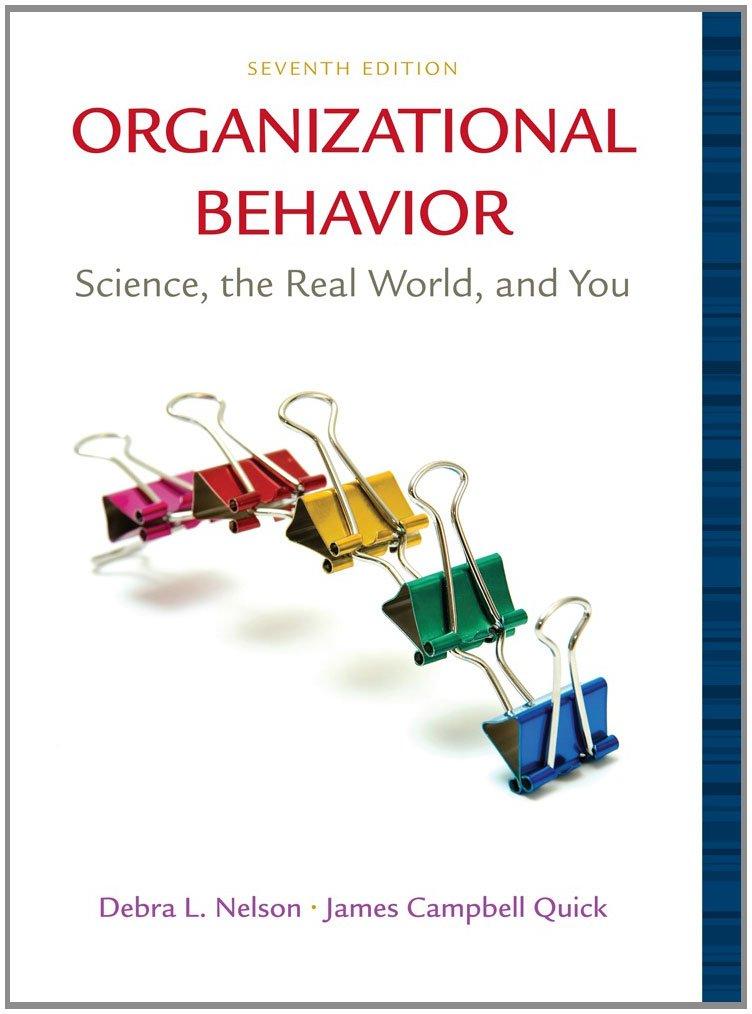Chapter 6 explores performance management within the context of learning theory, goal setting theory, and the use
Question:
Chapter 6 explores performance management within the context of learning theory, goal setting theory, and the use of rewards. Learning theory and goal setting theory provide the theoretical foundation for how and why performance management systems will work¾if they are properly designed and implemented. Reward systems inform us about key decisions that impinge upon individuals’ motivation to perform.
Understanding how people learn effective work behaviors and develop the capacity for effective and efficient job performance are important foundational elements in managing learning activities within an organization. This case focuses on the learning activities within two areas of the American Express Learning Network (AELN). One set of learning activities involves customer service training, whereas the other set addresses leadership development.
AELN’s customer service training provides
(a) technical training that focuses on learning the specific job, how to use different software applications, and how to process forms; and
(b) soft skills training that addresses such topics as customer care principles, speaking and listening skills, and dispute resolution. The desired outcomes of AELN’s customer service training can be summarized as equipping employees to provide extraordinary service. AELN’s customer service training is relevant to the chapter topics focusing on operant conditioning, social learning, and goal setting.
The other set of learning activities involves leadership development. The case describes three training modes for leadership development¾online, traditional classroom, and blended learning¾used by AELN, and how it went about ascertaining the most effective approach to leadership development. AELN’s leadership development activities can be connected to social learning and goal setting.
Questions
1. What applications of learning theory and goal setting theory do you see in AELN’s customer service training program?
2. What applications of learning theory and goal setting theory do you see in AELN’s leadership development program?
3. Using relevant concepts from Chapter 6, explain why you think the blended learning approach to leadership development turned out to be the superior training venue.
4. Do you agree or disagree with Jeanette Harrison’s learning philosophy that the effects of learning within a business organization should change lives both within and outside the workplace? Explain the reasoning behind your answer.
Step by Step Answer:

Organizational Behavior Science The Real World And You
ISBN: 9781111416218
7th Edition
Authors: Debra L. Nelson, James Campbell Quick





